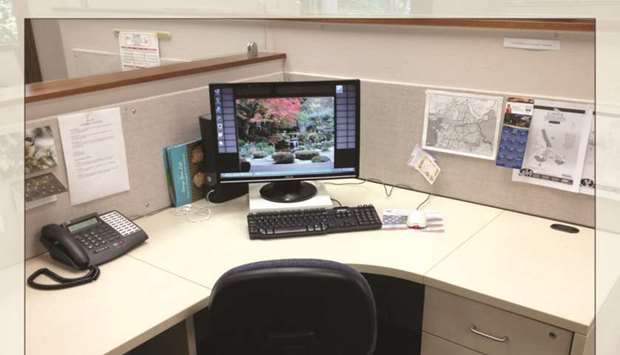Recently, thanks to multiple studies, the old consensus that “a tidy desk equals a tidy mind” has been shouldered aside by its opposite. These days, mess is a sign of creativity. Frankly, as a neat-freak, I consider this offensive, though I confess there’s a solid argument for it, stated most cogently in Tim Harford’s 2016 book Messy. Learning to embrace disarray, he argues, helps disrupt our tendency to think along the same pre-ploughed furrows, and permits the fresh associations that allow new ideas to form. Fair enough. But don’t expect me to stop arranging my notebooks and pens in a perfect line on my desktop. And don’t give me all that stuff about how this is an external manifestation of a desperate quest to retain a sense of control in the face of a meaningless cosmos. I’m just not a slob. OK?
Except I’ve realised, over the last few years, that this slob versus neatnik dichotomy – subject of a thousand slanging matches between spouses – is an oversimplification. I’m a tidy person, but decidedly average when it comes to cleanliness; whereas my partner values cleanliness enormously, while being somewhat untidy. I’m baffled that she thinks it’s OK to leave books strewn across the coffee table, when they could be nicely stacked. She’s baffled that I care so much about arranging the rug so it’s perpendicular to the floorboards, while apparently not seeing the crumbs and bits of pasta accumulating along its edge.
The infuriating thing about being on the “tidy” end of this debate is that the clean-freaks have certain hard facts on their side: let your house get dirty enough and you really might get a nasty illness. The same can’t be said for a non-alphabetised bookshelf. It’s true that tidiness can save time – if you know where things are, it’s easier to find them – but I’d be lying if I said that’s my motivation, and I’m sure I spend longer tidying than I save. No, we neatness obsessives should just be honest. We have some deep, presumably anxiety-driven need to impose order on our environments, and we should probably work on getting over ourselves.
Or should we? Because the curious truth about the neat versus tidy split, I’ve found, is that it causes almost no tension at all. Partly, that’s because they’re complementary traits: one person does most of the tidying, the other most of the cleaning. But it’s also because of something else I’ve learned about myself: it’s not so much that I crave a tidy environment, but that – and believe me, this is embarrassing to admit – I enjoy tidying up. If I lived with another neat-freak, I’d have nothing to tidy. Or, worse, she’d try to impose a different organisational logic on our stuff. Is my tidying some pitiful form of self-soothing? Probably – but of a healthier kind. And notwithstanding all that research on creativity and mess, it’s when I do some of my best thinking: as I bring order to the living room, I bring it to the contents of my mind. Harness your eccentricities, I say.

These days, mess is a sign of creativity.
